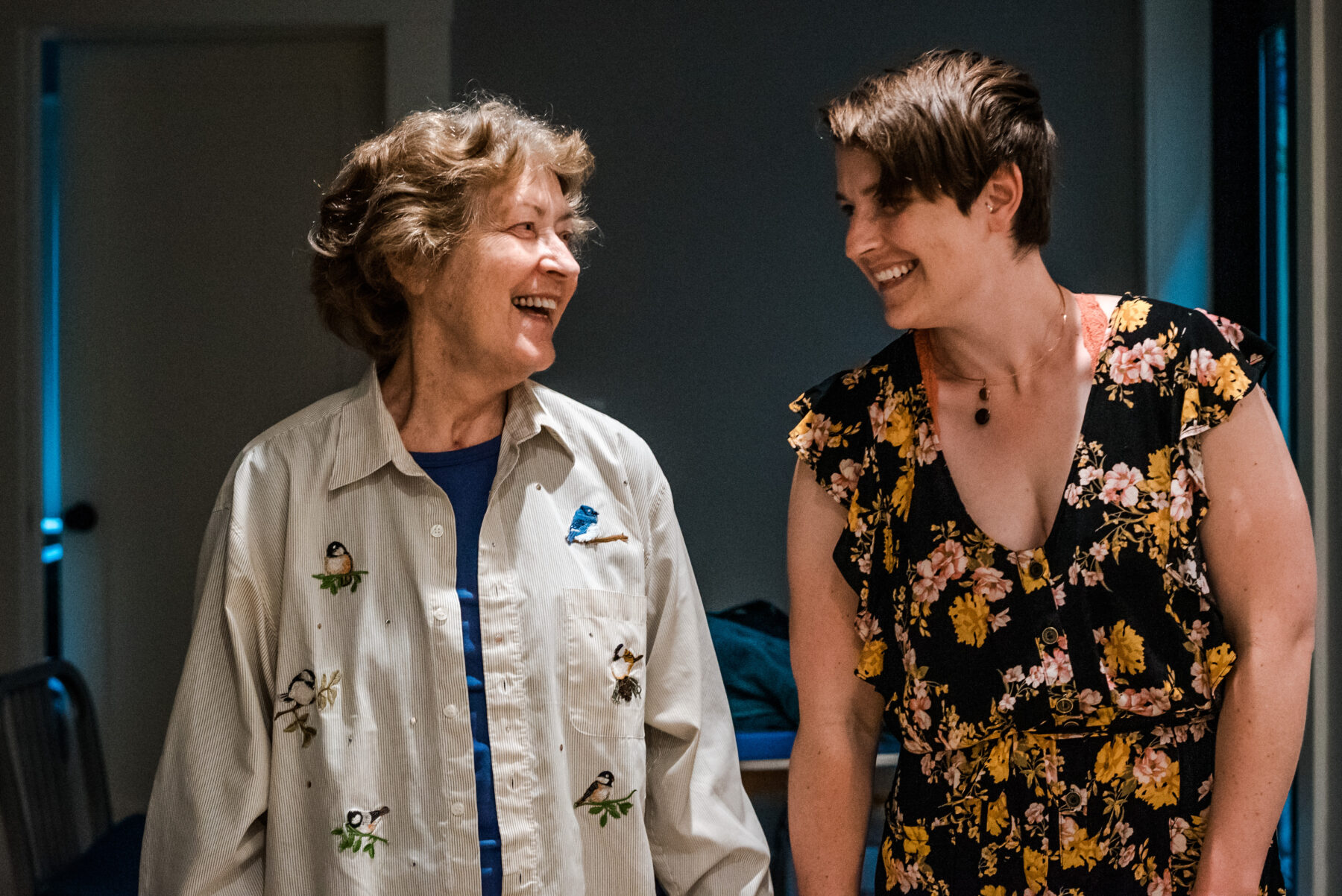Reflections on my mom’s 5-year transplant anniversary
The transplant journey is a complex study in what it means to be human
Written by |

Five years ago today, the phone rang early in the morning. “We have lungs,” the voice on the other end announced.
The first words I heard that day were months in the making. My mom, Holly, had been in the intensive care unit for almost 12 weeks following an acute exacerbation of idiopathic pulmonary fibrosis (IPF).
Today, she celebrates a big milestone in transplant recovery. She’s improving the transplant statistics by still being here, five years later, and by being healthy.
From the start of my mom’s illness and through her recovery from a bilateral lung transplant, I’ve learned how to embrace the complex feelings that accompany a rare disease journey.
I started writing this column two months after my mom’s transplant, and all of my early entries show me trying to comprehend the fullness of the experience of being my mom’s caregiver. A particular highlight is the column “Rumination on the Inseparable Dualities of Chronic Progressive Illness,” in which I explained many of the contradictory moments we faced while we were in the thick of things.
While those things are still true five years later, I’ve grown as both a person and a writer. I’ve learned the power of the word “and.”
For me, this entire experience has been, and still is, a complex study in what it means to be human. A younger me was searching desperately for silver linings, happy endings, and the life raft of grit in a wide sea of fear: the courage to care.
We’re lucky that my mom’s story had a happy ending and that I can have compassion for that younger me who used the word “but” to cope with something complicated and scary. When I read that column now, I see how much I’ve grown, because I no longer cast judgment upon or invalidate any of the challenging parts — or negate my optimism — with the word “but.”
No buts about it — here’s the truth
There’s no need for transplant without severe illness, and you don’t get on the list if your health is too poor to survive it.
There’s no movement toward a transplant without a progressive decline in health, and there’s no movement forward without fierce optimism.
Medications keep you alive, and they can cause terrible side effects.
Lung transplants save lives, and they are possible because a life was lost.
There’s gratitude in survival, and there’s grief.
Life post-transplant is a gift, and it’s challenging.
How Mom is doing now
My mom is grateful to be healthy five years after her transplant, and she’s had to cope with side effects and comorbidities. She’s had to remain vigilant about her health, and she’s relished more time with loved ones. She’s lived a lot more of life, and she’s enjoyed much of it thanks to new lungs. And she grieves for her donor.
Mom wants me to share that her emotional and psychological state is more positive than before her illness, and her post-transplant challenges have been easier than the pre-transplant ones.
She has a new perspective on life and says that after facing her mortality, she feels prepared for the end of her life but is no longer living in anticipation of it. The burden of progressive chronic illness is no longer on her shoulders.
When I asked if she had any wisdom to share on this big milestone, she replied: “It’s important to know that you never really leave what’s happened to you behind. Transplant is not a matter of switching out a bad part, putting in a new part, and — presto! — you’re done. Some of the stuff that goes with it is negative, but some is positive. The altered perspective of life, death, and mortality is positive, and it colors everything: my choices, plans, and relationships.”
We’ve both processed the experience and come to see it in its wholeness. We accept the parts that were and are hard. We’re grateful for the good things that have come from going through this together. And we don’t take a single day for granted. We approach the world with an open heart — more tender, more compassionate, more in awe.
Five years of being alive. How messy and wonderful.

Holly and Christie Patient share a laugh at home after Holly’s lung transplant five years ago. (Photo by Kathleen Sheffer)
Note: Pulmonary Fibrosis News is strictly a news and information website about the disease. It does not provide medical advice, diagnosis, or treatment. This content is not intended to be a substitute for professional medical advice, diagnosis, or treatment. Always seek the advice of your physician or other qualified health provider with any questions you may have regarding a medical condition. Never disregard professional medical advice or delay in seeking it because of something you have read on this website. The opinions expressed in this column are not those of Pulmonary Fibrosis News or its parent company, Bionews, and are intended to spark discussion about issues pertaining to pulmonary fibrosis.





Suzanne Davis
Christie,
I applaud your beautiful writing and sharing this story. I’m happy to hear more positive vibes as opposed to just the hardships your family has surely endured because of this terrible disease. I lost my older sister in 2020 at 62 to IPF during the height of Covid when, even if she wanted a transplant, it was unlikely to occur. Last fall my youngest brother succumbed to the disease (diagnosed 3.5 years at the time of our sister’s passing.) He chose not to pursue transplant and the alternative life style it entails and passed with dignity and suffering at only 62.
My hope is that we figure out what causes these interstitial lung diseases (there are so many) and appropriate treatments, and preventions are developed. In my family’s case, I suspect cigarette smoking was a causal link and yet some family members still smoke in spite of seeing these outcomes. It’s very frustrating to me. Thank you again for sharing and allowing me to vent and share some grief as well. I wish you and your family the best always. With gratitude, Suzanne
Anita Clos
This article speaks to my heart. I am 7.5 years post double lung Txp. Just a few days ago I was packing for my first plane trip since pre-Covid and it struck me just how “high maintenance” I’ve become since Txp. I had to pack skin creams (multiple skin cancers), sunscreens, medications, hair growing shampoo, vitamins…and I started to feel discouraged that I’m no longer a ‘pack it and run’ type of girl (if I ever was). But at 69, perhaps it’s the aging process, too. Then yet again, I’ve come to the same realization. That it’s no longer the pre-Txp challenges of breathlessness (none now) or oxygen (never), cough medicine (rarely), fatigue, limited walking…all those constant reminders of decline. I am alive and living. And it’s sweet and precious. To be honest, I don’t everyday think about being a transplant recipient and I admit there are some days I even neglect to thank my donor in my heart — and when I’m reminded like this it makes me a little sad, a little apprehensive and a lot grateful for how well I am doing. It’s not an easy path but it’s nothing — nothing — like living with lung disease. Yes, grief is ever present as is gratitude but honestly, most days it’s embracing life far more dearly than I ever did before.